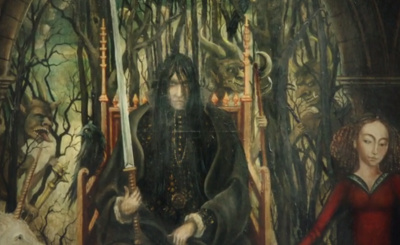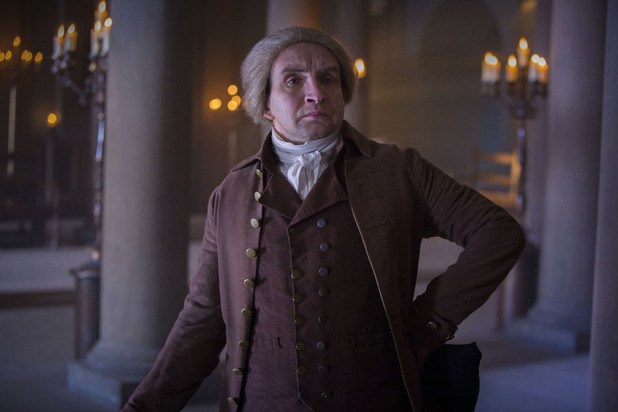
For the last seven weeks, Jonathan Strange & Mr. Norrell, otherwise known as the best fantasy series since The Lord of the Rings, has been airing in the United States (read my recaps here). The finale airs tonight, and will (spoiler if you haven't been paying attention) at last reveal the Raven King, John Uskglass, ancient ruler of both England and faerie.
Both the titular characters are inextricably bound to the Raven King, willing or no. Mr. Norrell is a hidebound conservative, and looks down on the Raven King's "unrespectable" magic, but he owes a debt to the earlier magician's efforts. On the other hand, at this point in the series, Norrell's erstwhile pupil Jonathan Strange desires to summon Uskglass in order to employ the sorcerer's power to rescue Arabella Strange.
And who is the Raven King, exactly? The closest literary parallel may be Watership Down's trickster hero El-ahrairah. Both characters loom mythically large, but they are political, not religious, heroes - incarnations of what a country or a people should be, not a soul. They are Robin Hood, or perhaps George Washington (don't tell me he hasn't become a bit mythical), rather than Jesus.
(Some spoilers, obviously.)








